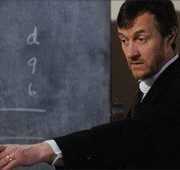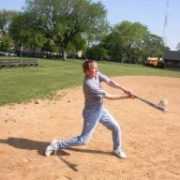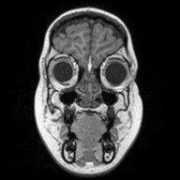What Academic Advice Would You Tell Your 18 Year Old Self?
We asked our PF Advisors to tell us what academic advice would you tell your 18 year old self. Here are their responses…

Talk to your advisor. Talk to your advisor a lot. Especially if you’re at a large school, there’s a fair chance that your advisor won’t even be aware of your existence otherwise.

Follow your heart! I did it too and it turned out right.

If you want to be a physicist, to learn the fundamentals well, and that includes calculus and differential equations, and Fourier transforms and linear response theory. In addition, be sure in get a good background in vector calculus and work very hard in studying the electricity and magnetism. And try to get the A’s in the classes, but more importantly than good test scores is that you understand the material. And try to learn the material well enough that you can repeat most of the derivations without a textbook.

“Be rigorously neat in your math homework. Use ruled paper and keep columns aligned. ”
Reason – In college, my calculus was good but i made so many mistakes in algebra and arithmetic due to sloppy writing habits that i became frustrated and disillusioned with higher math.
Differential equations i loved because they related so well to what one sees every day life but vector calculus was beyond me. I disdained it as illusory mathematical-tap-dancing so never progressed beyond “Diffy-Q” .
So i’m academically hobbled.
When i get to the point i can no longer physically get around it is my goal to go back and master Maxwell’s equations..
Life’s flotsam gets in the way – last week i learned out of necessity how to make those double-flare tube connections for car brakes. You just have to be rigorously neat .
Maybe i’m finally mature enough for high math.

In high school, I was strictly focused in starting my college career as a mathematics student. However, due to a number of circumstances, I entered college in engineering (chemical), and have never looked back. My high school courses in science subjects such as Chemistry and Physics really turned me off. I was unaware that the coverage of these same title subjects (curriculum) in college would be so different and so fascinating. I found that they tied in so perfectly with my interest in mathematics, and the combination would carry me through a wonderful and interesting career. So I guess my advice to myself as an 18 year old would be to embrace engineering and not be soured by the poor presentation of the sciences in your high school courses. The complementary synergism between the science and the math will make for a fascinating future.

1) Don’t be too much impressed by smart people having a big mouth. Most of them are just as insecure as your are (or psychopaths).
2) Smartness is often overrated. Discipline and curiosity are just as important.

I would tell him to go for what he really loves to study and do well. Nowadays, several “fashionable” things and jobs tend to dominate good portions of the market but it’s best to do what you’re good at and love it than to put half-hearted efforts into just hunting more money.

Firstly, I would tell my younger self, that I shouldn’t be blinded by the fact that I ended up in a STEM field. It is far more of a language, then one might think. I don’t mean the many technical terms and definitions, I mean the slang in which each specific group of scientists communicate. E.g. if someone says “bounded operator” then there are at once many hidden co-notations: Hilbert spaces, continuity, operator norm etc. One must learn which facts belong to specific terms even if not mentioned, i.e. how the language is used. And physicists have a different slang than mathematicians.
Secondly, I would ask myself, whether my goal will finally be an academic career or an economic career. In either case time in which one gets finished counts: In an academic career many opportunities aren’t open to older persons anymore, and on the job market it is generally true: the younger the better. But the focus is a different one. In the first case of an academic career the study should be as broad as possible. You’re expected to have fundamental knowledge in every field and excellent knowledge in your specific field of competence. In the case of an economic career, the specific contents are far less important, the degree itself counts. Chose the one which gets you finished fastest. This might also depend on specific professors, so ask older students about them. Numeric algorithms or classical physics might be boring but possibly quicker than algebraic topology or quantum field theory.

Find some place away from your home to study and do homework. There are a thousand distractions around your home, ranging from TV to computers to your own family members. You can’t handle them so don’t even try. Just go somewhere like a library or empty classroom on campus every day until your work is done.

0. Don’t assume that, just because you sailed through high school you’ll automatically sail through university without seriously upgraded time and effort. Tertiary education realities can devour you all too easily.
1. Persevere with honors level pure maths. Don’t fall back to the pass-level class because it’s easier, or because pure math is just tedious, pedantic, frustrating and boring.
2. If you find yourself falling asleep in lectures, change your diet and/or get other medical advice. Related: avoid eating in lectures or shortly before. See postprandial somnolence.
3. Do ALL of the exercises specified in lectures, prescribed textbooks, etc, even if you’re not getting formal credit for them. That’s the only way to find out (before your exams) if you genuinely understand the course material.
4. Don’t get absorbed in endless time wasters like Dungeons & Dragons, nor any of the modern addictive online games. It will not end well for your final year results. Try to maintain participation in at least one energetic physical sport or activity (that you actually like, even if you’re very good at it).
5. Be more conscientious in achieving good results for ALL the courses in your curriculum, not just the ones you find especially interesting.
6. (Postgrad studies:) Listen to your supervisor! Try to do what he/she suggests. Don’t branch out on your own private line of research (at least, not yet).
When I was 18, I was accepted to Harvard from a small high school in Tennessee, and I did poorly for quite a while and essentially gave up for a while until I flunked out and then returned and eventually learned the ropes. Much later I read an article by Uri Treisman on why some racial minorities at Berkeley failed out of calculus there, and found it was due to not knowing how to study at a competitive school. It seems that his results would have applied to me as well. I.e. my take on it today is that those of us who prepared at inferior schools, but achieved high success, arrive at college thinking we are better than other students and have to do everything on our own. Hence we dismiss the assistance of other students as well as the assistance of college provided services. When Treisman gathered his previously unsuccessful students into groups who worked together and worked on all the hardest problems, they began to excel. The same thing worked for me at Harvard; when I began to study with other students and accepted that I had much to gain from that, I began to succeed. So that would be roughly my advice to my 18 year old self: be modest and open, work with others and accept that you have much to learn from them, try the hardest problems but share the load, and just keep working.

A lot of people head for college with only a vague idea of what they might do for a living. There is nothing wrong with that. College gives you a chance to sample many different subjects, find some that you are interested in, and make some decisions about which ones to pursue. Taking advantage of that opportunity will open up a lot possibilities – maybe some that you didn’t know existed. Once you do find a field you like, look for opportunities to get experience in it and jump on them. Find people in that field and ask them questions about it. How did they get to where they are? How do they spend their days? What do they wish they had known sooner? It is usually easy to get people to talk about themselves and give advice. (The hard part is getting them to stop.) This will help you find out if you are on the right track.
For me being 18 was 45 years ago and the world has changed massively since then – what I would tell my 18 year self now and way back then are entirely different. I will stick with now. An 18 year old now will not have a job for life like when I was 18. They will expect to have something like 5-6 career changes during their working life. I would tell myself – forget being this lazy good for nothing – which I was back then, and knuckle down and do some work otherwise you will be behind the 8 ball big time. I would go to university and actually do an arts degree – here you can do arts and take pretty much what you like – but you need a major – I would major in math – its pretty much central to everything and will get you into a Masters in most things – eg engineering, physics, actuarial science, the hot area right now – big data, computer science – all the predicted jobs of the future. Then after sampling a few things in what I studied ie some physics, stats, finance etc I will look into the job market. Right now Big Data is really hot here in Aus – so I would do a Masters in that. But I will not expect it to last forever – I would expect to do another Masters in say about 10 years – maybe 3-4 in total throughout my working life.
- Be disciplined about your sleep habits and make sure you get good, regular sleep.
- Eat properly — lots of real fruits and vegetables, avoid junk.
- Exercise regularly.
- Make conscious decisions about the people you socialize with. Spend the most time with those who have similar goals and who are on track with meeting them, avoid the negative ones.
- Spend time with people who are smarter than you.
- Be constructive with your down time. You need down time – make sure you fit it in, but manage it. Spend more time writing, reading, playing sports, less time as a couch potato or aimlessly surfing the internet.
- Make the time to read up on the things that interest you, not just what is assigned to you.
- Explore little side projects. Write computer code. Build little electronic devices.
- Seek help when you can’t solve a problem after you’ve really struggled with it.
There’s no award for the ‘Most Independent Student.’ - Your major does not define who you are.
- Your school does not define who you are.
- You choose who you are and this is not a single bit choice, but a never-ending series of small decisions.
- You have permission to do well. Avoid negative self-talk.
- There’s no single optimal path in your education and career. Life has many choices and many of them are actually on par with each other.

Don’t eat the big mint…[sign in high school restroom]. Lecture notes prevent narcolepsy [written on the whiteboard in PHY 101].

As much as STEM courses are important in your life, make sure you take other subjects too. Writing and history are just as important when you get out into the real world. Being well read can be the difference between getting that dream job and not even getting an interview.

I would tell myself that maintaining a work-life balance is essential, to work hard and play hard.

If you obtain a position where you can both teach and do research, don’t downplay the research and make sure to publish. I made this mistake and as a result, I no longer uphold an academic position.
Thanks to all the PF Advisors that shared their academic advice. We have more questions for them in the near future. Stay tuned for another “Ask the Advisors”!
I have a BS in Information Sciences from UW-Milwaukee. I’ve helped manage Physics Forums for over 22 years. I enjoy learning and discussing new scientific developments. STEM communication and policy are big interests as well. Currently a Sr. SEO Specialist at Shopify and writer at importsem.com





Mudpie, I think we like to find advice with a little more sense of direction. Something like do not postpone your homework or do not let your responsibilities go to the last minute; study ahead whenever possible; review any course which you need to repeat in order to help ensure better progress the next try."There are substantial individual differences in how human beings react to a given situation, so we should be very careful about claiming that x (or even a limited amount of x) is likely to be beneficial for everyone." Alfie Kohn
I truly appreciate your feedback to what I'd tell myself if I were 18 again. I do believe your advice to be genuine and to be true. To be true to my own advice of having faith that what you have expressed to me is like a seed of truth planted that will forever be with me. Thank-you…..
Mudpie, I think we like to find advice with a little more sense of direction. Something like do not postpone your homework or do not let your responsibilities go to the last minute; study ahead whenever possible; review any course which you need to repeat in order to help ensure better progress the next try.
Don't worry, be happy, avoid getting stuck, keep moving, learn all you can all the time but most of all have faith in yourself.
I would tell myself to follow mathwonk's advice and study in groups at least part of the time. I always studied by myself which was probably not the most efficient, and was somewhat isolating given the heavy workload we had.
But the root of the problem was really arrogance. I would tell my 18 year-old self to be humble. When I was 18 I wasn't half as good as I thought I was, so I didn't take advantage of all the help that was available to me (including my peers).
I could have used a resource like PF 50 years ago. :oldsmile:
I'd say 'Try yet again to get your head around Calculus beyond the basics'.
My parents did what they could, which was to encourage me to read/study, but I quickly got beyond their experience, particularly in math and science. If I had some understanding of the process, I would have tried to find a university professor to point me in the right direction, or at least a university based program. I did have the experience of doing a summer study program at a local university. The classes were taught by graduate students in their respective disciplines, but I could have used more guidance throughout the year.Interesting. I have a standing offer to mentor student research projects, either for competition, publication, or just for personal development. My students have high success rates getting their research published, winning science fairs, and getting into great schools. (Just found out today, one former student has been admitted to Harvard.) But in my view, my services as a research mentor are underutilized. I charge nothing, but I do expect hard work and I guide students to good, solid research. Yet few students are interested. It seems that lots of students want the big name schools, but few are willing to really work for it.
Greg Bernhardt submitted a new PF Insights post
Ask the Advisors: What academic advice would you tell your 18 year old self? Great article. It's more or less along the lines of, if I knew then what I know now, or learned since. And I'd start back as early as 7th grade.
I spent a lot of time at the public library and a local university library reading on math and science, as well as history and religion. I could have used a mentor, or mentors back then. My parents did what they could, which was to encourage me to read/study, but I quickly got beyond their experience, particularly in math and science. If I had some understanding of the process, I would have tried to find a university professor to point me in the right direction, or at least a university based program. I did have the experience of doing a summer study program at a local university. The classes were taught by graduate students in their respective disciplines, but I could have used more guidance throughout the year.
Greg Bernhardt submitted a new PF Insights post
Ask the Advisors: What academic advice would you tell your 18 year old self?
View attachment 226273
Continue reading the Original PF Insights Post.Go back and learn all the math you can so this stuff makes sense and you can complete the research you are working on now. Apologize to that hateful teacher that hit you with his pointer stick because he mistakenly thought you were talking. Then kicked you out of pre algebra class for taking it away from him and breaking it into pieces. Better to let him be the bully so you won't suffer the rest of your life for his meanness. Start college at 18 instead of 40! There's a lot of great things you'll do between now and 59 that I can't do because time's running out for me. Retirement is eight years away.
The harder you work when you are young, the less hard you will have to work when you are older.
18 years old? Write down your strong and weak characteristics. See Choppy's list. ENJOY making the weak ones better.
Your boss/tutor of the moment is always one you need to impress – fail at that at, your peril.
Look at Past Papers – and understand how to answer them well. Look them up BEFORE you do the course.
Ask for help if someting's hard – people will give it. But ask three good people if it's for advice!
If at some stage you aren't sure what to do, find a qualification you can enjoy. Work experience is "nice" but a quali will be with you your whole life. Once you start, complete things.
18 is peak for learning, and building who you are. Make sure you use every hour of it the best way you can.
For fun, learn a language. I did three. It makes the world bigger.
i would tell myself, mostly nice job. the same thing that my 30 years old is telling to my 23 years old right now. only i would prevent myself to buy the stuff that weren't much useful to me. and my 30 years old will probably tell me the same thing about the purchase mistakes i am going to make. like not buying a RPI camera module for a orange pi board. CSIs aren't compatible.
i live with a very annoying muslim family in iran, and i planned my behaviour in a way so i could get the most efficient freedom. no mistakes till this day.
the only thing i would do for myself, is encouraging myself.
Math is a PRACTICE SPORT – do ALL THE PROBLEMS, and go back a day later and do them again ( I tell my kids, Professional Baseball players KNOW how to throw a ball, but they still go out every day and practice, This may seem counter to Dr. C but really is is approaching from another angle, some believe "if I do the work I will pass" – but this is the opposite of I do not understand, so I can not do the work…. Understanding is the objective, and the pathway is doing the work).I don't see this as counter at all to my viewpoint. I agree completely. Great advice here:
Math is a PRACTICE SPORT – do ALL THE PROBLEMS, and go back a day later and do them again …
… Understanding is the objective, and the pathway is doing the work.
My road to being 18 year old entering a State Engineering program, ( U of Del.) was not clear or direct.
Due to very late diagnosis of Lazy Eye, and no diagnosis of ADD ( which was not even a thing then); I had been in Learning Disabled (Classified LD) classes up until about 8th grade. Because of this and having an interest in Electronics since 11 or 12 years old, when presented with Electronics option in a Vocational High School – it seems to be a good option to everyone. I completed this 3 year program in 2 and in doing so about half way through 11th I realized I needed more than the Vo-Tec, to Community college path I had been planning. But now my academics were off track, and I had to beg to get moved into the math and science classes that would be necessary for college admissions ( also my High School was, and still is, not very good, today 18% go on to college). Additionally – I felt like I never fit in to HS ( common), and I saw University as a chance for a good reset on almost everything in my life.
That being said – here is my feedback:
But these are not necessarily the things I would be saying to a student that is a good academic student. Looking back at it I really do not know how I survived, my son has many of the same issue and "noise" that he deals with today …I am sure I would not have succeeded. Personally I now believe, understand and empathize with the fact that different people develop at different rates and at different times in their lives, some people, amazingly to me, really have it together very early. I have watched kids at 12 years old set plans, and execute through to grad school, where somethings I feel like I did not figure out until 40.
Haha. Well I don't know how much you were drinking at the time, but anyhow, I agree.
I would like to add that one should do the "right" hard work.
I am very sure you were naturally able to do the right work and the right effort, but I've seen some people doing hard work the way they shouldn't. Some people will attempt solving the same problems over and over again after some class until they basically memorize the problem and solution itself. Not that I am saying this is necessarily bad because it is important at times especially those that need practice, but they get like almost perfect grades and still be unable to answer conceptual questions. I would probably use more time in actually understanding the concept than just trying to be able to solve problems.My own (18 year old) hard work was pretty balanced: roughly 20% reading and re-reading book, 30% reviewing class notes, and 50% problem solving. Of course, there were some variations, depending on the specific math or physics course in question.
In the 32 years since, I have known hundreds of students who were simply not working even half as hard as they needed to. But I have not known a single student who was honestly putting in 50-60 hours a week on academic work but solving too many problems with too little emphasis on understanding concepts. NOT ONE. This is not to say that they do not exist out there, somewhere. But not having encountered them personally, I do not take much of my time and effort advising hypotheticals.
The more common thing I see is lots of students trying to work smarter instead of harder. Once they are working about 1 hour outside of class for each class hour (when 2-3 hours are needed), they then try and give problem solving short shrift and apply various techniques and succeed at deluding themselves that they understand the concepts when they can still only work a small fraction of the medium difficulty problems.
Adjusting a student's approach once they are working hard enough is a much easier task than getting this generation of sloths working as hard as they need to in the first place.
Honestly, this is what I would tell myself. I don't expect it to be suitable for anyone else. It may seem like I'm joking, but actually I'm not. The most important advice I would tell myself — and that is the question — is what I've found is truly important in life. So I see academic advice in the context of overall life advice.
I would tell myself to be sure not to go away from home to college until I'm ready. But when I do go, prioritize getting a girlfriend as soon as possible, since otherwise I will be too stressed out to concentrate. Forget what I was taught growing up in church on that subject. That has already taken enough of a toll on my young psyche.
Work out every day. Reject the idea that my body is only there to carry my head around. If I take care of my body, my brain will take care of itself.
Take some easy courses along with the hard ones. Leave plenty of time to study. Never take on more than I can handle. I'm there to score a 4.0 GPA, not to be heroic or suffer. I'm not looking for a challenge, I'm looking for success.
Spend more time in the computer room, because the main thing in my future is programming, because that's where the jobs will be. Take math I can use. For example, don't take a set theory course.
Don't take very hard courses. Just because I'm good at physics doesn't mean I need to take graduate quantum theory when I'm a junior. Don't push my luck. Don't try to impress anyone, in particular my teachers. Remember, I'm there to do what's good for me, not what makes them approve of me.
Hook up with a business major, so we can start a business and get an IPO as soon as possible. Remember, I can learn anywhere, including community college. The main goals in going away to a good college are (1) girlfriend and hopefully future wife (2) business guy and hopefully future IPO comrade (3) other useful contacts.
Maybe, if my girlfriend is a business major, I should become a business major too. Then we can study together, figuratively and literally. Then I can be the one who finds the tech guy. I would still get to use my math skills, counting all that money.
Probably I would stay in the STEM world academically. But I should be absolutely certain it's what I want, because the competition is going to be more and more intense as more foreign graduates enter the USA.
When I find out my advisor is too busy to see me, because he spends most of his available time with some of the female students giving them private advice, and the rest of his available time smoking weed, it's time to get a new advisor.
Recognize that some of the really cool and popular professors are psychotic. Be careful. Don't let them influence me.
Stay away from the alchoholic beverage the other guys in my dorm make from something they stole from the chem lab, even if all the cool guys and girls are drinking whatever it is from a large silver bucket. If I see someone passing out, leave at once.
Stay away from politics and demonstrations. Avoid teachers who want me to get involved in any way with their favorite cause. I'm at school to learn and to build my future life, not to be a crusader in some cause I will probably think is foolish in ten years. I'm just a kid, I'm not old enough to drink legally, and I can't save the world. Let the adults take care of that.
Stay away from people who try to drag me over to whatever their religious group is. If God wants me to join a religion, he or she will tell me himself or herself.
Following up on the girlfriend theme, ride my bike across the quiet little college town to the other college, where the main goal of the girls is to find a college man to marry. It's important not to be too restrictive, and remember the old saying, there's plenty of fish in the sea. If I like that college better, go ahead and see if I can transfer. It's easier and when it's IPO time no one will care.
Smile more. Don't antagonize anyone. Avoid people who irritate me. Don't argue. Smile and be happy.
Remember not to stress out, get lots of sleep, study every day and never fall behind, and if I find a course too difficult, drop out before it's too late.
When I go to the disco, never remain seated. When a girl looks at me and smiles, that's all I need to know. Get up and dance with her. Leave the heavy thinking for advanced calculus and that second QM course. There's a time to think, and there's a time to have fun.
Don't take fencing. I won't be needing expert swordsmanship in adult life. Who cares if the instructor is an attractive young woman who may qualify for the Olympics. I have a girlfriend, right? I don't need any coaching outside of class.
Play football. Also swimming, weight lifting, and wrestling. At least one team sport is mandatory. Football is the best. It impresses the Wall Street types that you are tough, not afraid to risk a little brain damage, and are a team player. Remember the IPO?
Above all, be goal-oriented. If I lose sight of my goal, and question why I'm in college, then it's time to get out until I know why I'm doing what I'm doing.
Brush my teeth after every meal. I don't want to spend my IPO money on dentists. Remember, they are not baby teeth anymore.
Never miss a lecture.
Don't ask stupid questions, even if the teacher says there are no stupid questions. He or she doesn't really believe that anyway. If you ask a stupid question, everyone will think you are stupid.
If you are taking your general education requirement in a history class, and the teacher never talks about the course, but spends every lecture pontificating about politics, then drop out immediately. Don't argue with a professor. Don't be the lone crusader. Never fight battles you can't win.
So that is more or less my advice. Some of these points are loosely based on my own experience, the others are less loosely based. The main thing is to stay healthy in mind and body, to be goal-oriented, realistic, honest with yourself about what you want, and work hard but not too hard.
Cheers.
P.S. I would consider joining a fraternity. My college did not have one, but maybe I will tell myself to go to a different college. Try and find out about the hazing level first. A little abuse, humiliation, degradation, and beating never hurt any healthy guy. But try to avoid the most psychotic ones. Once you're in, make full use of the old homework and exam papers they keep on file.
More P.S. Do every problem in the book, not just the homework problems. The teachers use the unassigned problems, or close to them, as exam problems. In particular they use the hard ones. Duh.
I thought of another important point. Look for the German professors. In particular, one who is a bit condescending, seems to lecture at a very slow pace, never gets too excited, and likes to make sarcastic remarks about how unprepared American students are. These German professors are the very best. Gaudeamus igitur, etc. In my ideal school, every professor would be German.
I am very sure you were naturally able to do the right work and the right effort, but I've seen some people doing hard work the way they shouldn't. Some people will attempt solving the same problems over and over again after some class until they basically memorize the problem and solution itself. Not that I am saying this is necessarily bad because it is important at times especially those that need practice, but they get like almost perfect grades and still be unable to answer conceptual questions. I would probably use more time in actually understanding the concept than just trying to be able to solve problems.I support that. Problem solving does help in understanding the concepts, but that doesn't mean that one should go on solving problems infinitely. I have seen students solve 80 to 90 problems on each chapter. But you ask them something tricky, they will not be able to answer, because they have never learnt anything out of the box. When I study any topic, I solve problems for better understanding, but after that, I study that topic from college level or higher books, so as to learn more and more.
For example, when I first learnt about quantization of charge and then about photons, I was quite interested. I asked my teachers, who never bothered to help me. So I started out with higher level QM books, and now I am happily studying QM.
But to the OP, I think my advice for my 18 year old self would be to drink less and have more confidence that the hard work will pay off.
At the time I didn't realize how good the odds were of working 60 hours a week on academics paying off as well as it would.Haha. Well I don't know how much you were drinking at the time, but anyhow, I agree.
I would like to add that one should do the "right" hard work.
I am very sure you were naturally able to do the right work and the right effort, but I've seen some people doing hard work the way they shouldn't. Some people will attempt solving the same problems over and over again after some class until they basically memorize the problem and solution itself. Not that I am saying this is necessarily bad because it is important at times especially those that need practice, but they get like almost perfect grades and still be unable to answer conceptual questions. I would probably use more time in actually understanding the concept than just trying to be able to solve problems.
Smartness counts but diligence may be more important even for the smart. Most of us are not geniuses. It is diligence that is the field leveler for the success for the majority of us. Diligence produces good marks too.I've been doing some volunteer work at a school that has allowed me to elevate diligence and hard work to what I regard as it's proper level. They seem to be granting me even more of a free hand next year.
But to the OP, I think my advice for my 18 year old self would be to drink less and have more confidence that the hard work will pay off.
At the time I didn't realize how good the odds were of working 60 hours a week on academics paying off as well as it would.
Smartness counts but diligence may be more important even for the smart. Most of us are not geniuses. It is diligence that is the field leveler for the success for the majority of us. Diligence produces good marks too.If you can go and teach that to one single teacher in my school, you'll surely get a prize. Everyone knows everything. I have been trying to change the mindset of these people for the last 8 years, and have failed miserably. Teachers want money, students want marks. Who cares about knowledge? The ones who do, like me, suffer in the middle of these people.
Actually I think 18 is too old to wait to give anybody academic advice. Students should have the basics rules for success inculcated by the time they enter high school. This gives them time to test themselves before making that important career decision. By waiting to 18 just gives them more time to develop non productive attitudes and/or behaviors which must eventually be corrected.
My school is loaded with over-smart students, and it seems teachers only value them because they somehow get marks in the exams.Smartness counts but diligence may be more important even for the smart. Most of us are not geniuses. It is diligence that is the field leveler for the success for the majority of us. Diligence produces good marks too.
Maybe true, but not good enough. Fail, means:
Rude. Your advice wasn't good enough either (for everyone other than yourself).
My advice would be good enough for me as it would be the best advice for my 18 year old self. I don't feel it's necessary for me to write a detailed contract to cover all corners of my advice.
Thanks.
@Greg Bernhardt great advice by the advisors, something that I would like to keep in mind, being an 18 year old.
While all the advisors have given important advice, @Demystifier, @Choppy and @haushofer have spoken what I always believed. My school is loaded with over-smart students, and it seems teachers only value them because they somehow get marks in the exams.
It's okay to fail.Maybe true, but not good enough. Fail, means:
It's okay to fail.
As a chemist, I would say study mathematics and physics well. They will help you understand semi-classical to quantum realm of the chemical phenomenons you are seeing in a more rigorous way.
I've seen physicists going chemists, but not the other way around save for few people (I've seen one on this forum too). What you learned in physics can be easier to apply to chemistry because you know the more fundamental and general form of laws of nature, while what you learn in chemistry consists of many approximations to them.
I regret not taking optional physics courses, A LOT…especially when my chemistry professors teaching physics were very unmotivated and had poor teaching ability.
At least a few things:
Study metallurgy; start learning computer programming earlier, and stay with it longer; learn at least two languages other than my own, at least to the intermediate level. Learn MORE about Photography, especially equipment and applications.